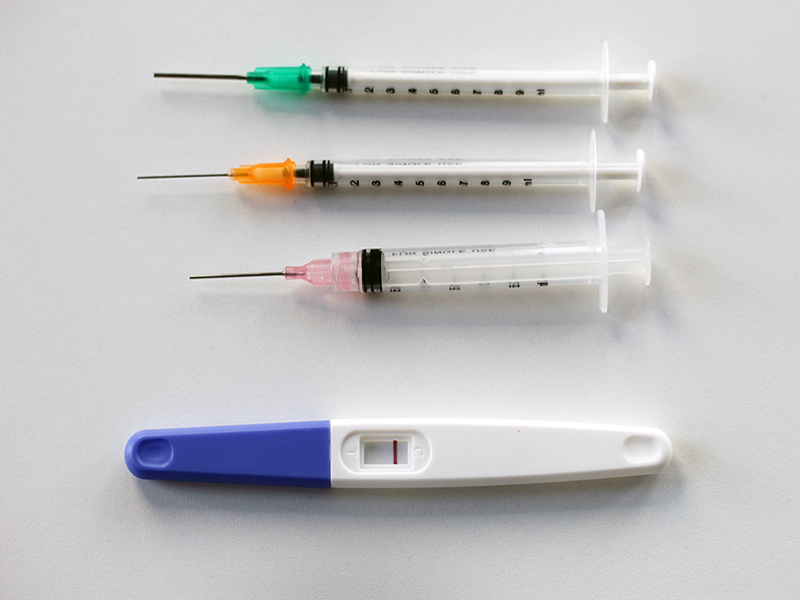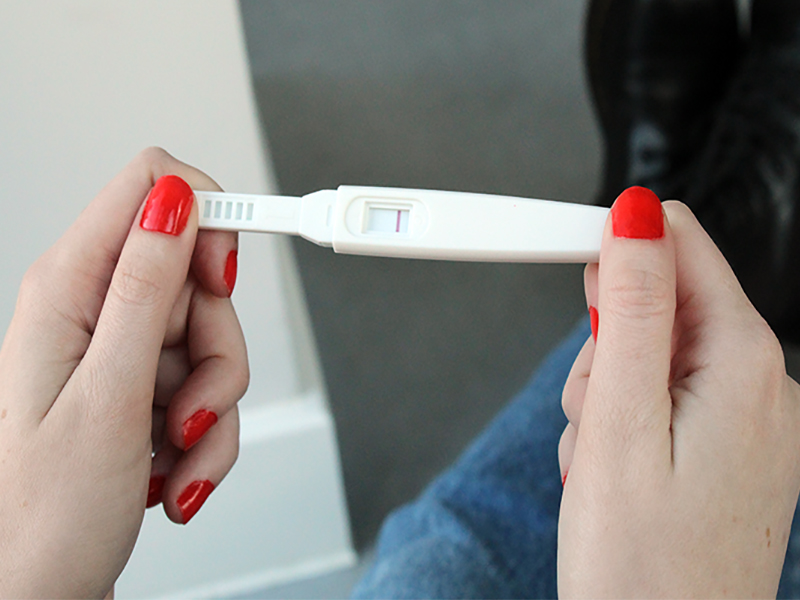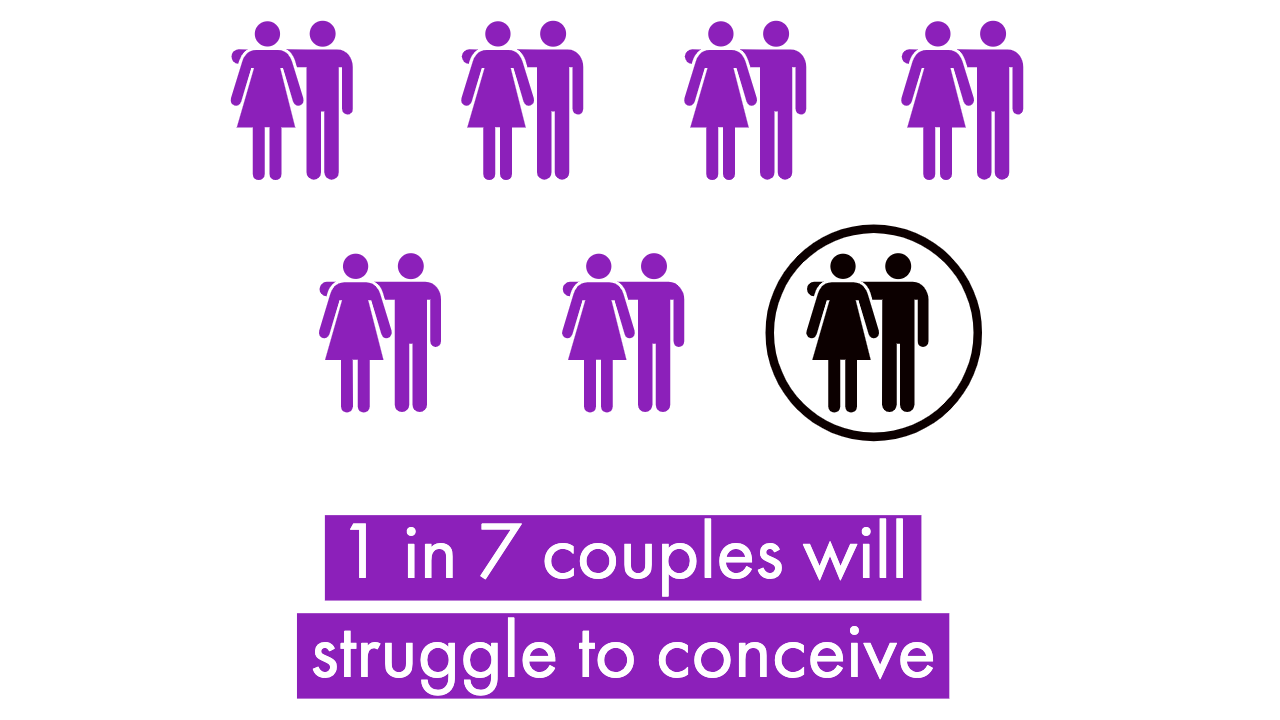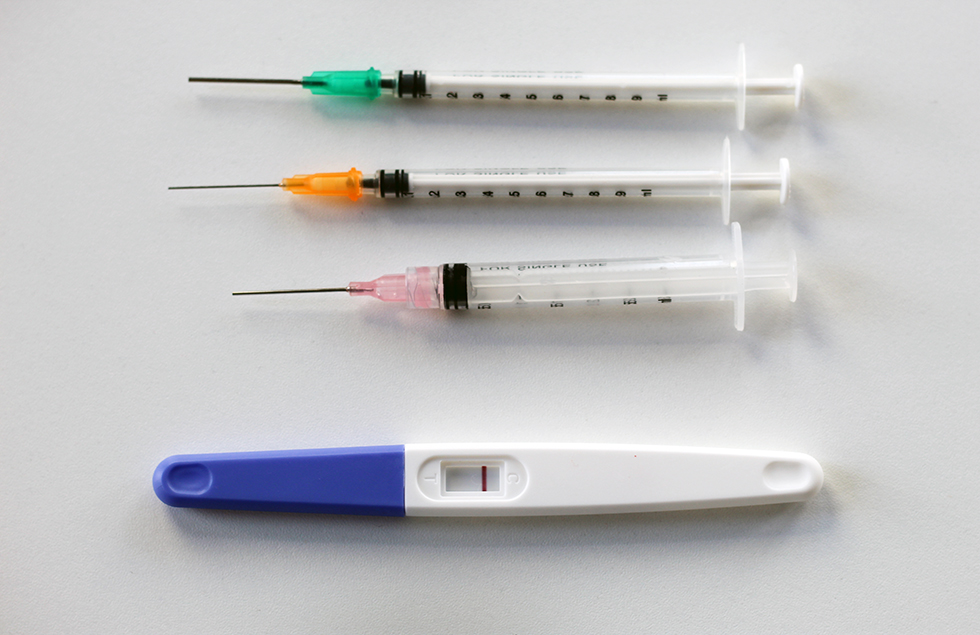How useful is BMI as a measure?
Body mass index (BMI) has long been used to find out how healthy a person is, based on their weight, height, and age. It was first created in the 1800s and by the late 1900s had been adopted by governments as a way to assess weight. One of the issues is that BMI cannot distinguish between fat and muscle, so many fit people can be labelled as overweight.
- underweight <18.5
- healthy weight 18.5 to <25
- overweight 25 to <30
- obese 30 to <40
- morbidly obese 40+
Data compiled by The National Institute for Health and Care Excellence (NICE), shows that none of the main causes of infertility are weight related.
The main causes of infertility in the UK are (per cent figures indicate approximate prevalence):
- unexplained infertility (no identified male or female cause) (25%)
- ovulatory disorders (25%)
- tubal damage (20%)
- factors in the male causing infertility (30%)
- uterine or peritoneal disorders (10%)
Fertility organisations and charities
If you need support or assistance there are many charities and organisations who can provide help, advice and support.
Cardiff Support Group
Fertility Network UK hosts monthly fertility groups in Cardiff.
- Couples and individuals are very welcome to attend the monthly group who meet in Media Point room, Chapter Arts Centre, Market Road, Canton, Cardiff, CF5 1QE at 6.30pm. The group meets regularly on the 2nd Tuesday of the month.
- The next Cardiff meeting is on 14 January 2020.
- For more information please contact Alice at alice@fertilitynetworkuk.org.
National Lottery Community Fund
Fertility Network Wales (UK) was recently awarded a grant of £363,304 from the Lottery Community Fund.
This grant will help the charity continue to support people suffering with infertility in Wales. Alice Matthews, Fertility Network’s Welsh Co-Ordinator said, “We are delighted to have been awarded this grant from the National Lottery Community Fund. The five year grant will enable us to continue providing Wales-specific fertility information, impartial advice and both practical and emotional support to anyone in Wales who needs it.”
After nearly eight years of infertility, Kelly Da Silva decided that enough was enough, she could no longer deal with the physical and mental pain of trying to conceive. Kelly struggled to find information about people who had decided to end their fertility treatment without success. In response, The Dovecote was set up five years ago and currently has a global community of over 1,000 people. The Dovecote aims to help and support those who find themselves involuntarily childless.
Healthy Weight: Healthy Wales Video
The Welsh Government acknowledged that the nation is suffering an obesity epidemic. In this short video, the plans for Healthy Weight: Healthy Wales are outlined.
Emotional and mental impact
This year fertility awareness week took place between 30 October – 5 November. The week aims to spread awareness around fertility issues. Infertility is a disease that affects your physical health and your mental health too.
Think IVF shouldn’t be an #NHS priority? Please do watch Fighting for a Family, a @5_News special programme at 6.30pm tonight. #fertilityawarenessweek https://t.co/WYV7LAwzFy
— Catherine Jones (@catherine5news) October 30, 2018
Although 60% of adults are overweight, women are being denied access to fertility treatment with no assistance because of their size

Getting pregnant is generally portrayed as an easy thing to do. With one contraceptive slip up, a bundle of joy will appear in nine months. Sadly, for many, this is not the reality.
Approximately, 84% of couples will conceive naturally within a year of having regular unprotected sex. However, one in seven couples will suffer from infertility according to the NHS.
A large proportion of the one in seven will be denied treatment due to body mass index (BMI) barriers. Imagine being told that you can’t receive treatment because you’re overweight, with no advice or support given in return? This is the reality for many of those struggling with infertility.
The Welsh Government acknowledges that the nation is suffering an obesity epidemic, with 60% of adults overweight, they have outlined plans to tackle the issue with their Healthy Weight: Healthy Wales initiative.
The most deprived areas in Wales have the highest rates of obesity, 28% of adults in these areas were obese in 2018/19, compared with 22% of adults in the least deprived areas.
The Food Foundation’s report on the affordability of the UK’s Eatwell Guide (a guide outlining what’s needed for a balanced and healthy diet), found that the cost of such a diet would estimate to be £41.93 per adult, per week – a cost that many can’t afford.
Abigail Scott Paul works for The Joseph Rowntree Foundation, an organisation working to solve UK poverty.
Living in poverty creates a stressful environment where less immediate priorities, such as losing weight feel unobtainable when it’s more important to focus on surviving.”
As one of the fattest nations in Europe, what support is currently being given to those who are struggling to start a family? More importantly, have weight issues prevented them from qualifying for help?

A ‘soft target’
Fertility Network UK, the leading patient-focused fertility charity, outlines that in Wales, “Women accessing IVF treatment must have a BMI of between at least 19 and up to and including 30.”
Dr Rebecca Brown, a postdoctoral research fellow at Oxford University, has argued that there is insufficient evidence to suggest that IVF is any less successful with women who are overweight, and that obese people are a “soft target” for cost cutting.
“Negative attitudes towards obese people render them as easy targets for cost cutting commissioners,” she says.
Alice Matthews is Wales’s coordinator for Fertility Network UK and speaks to women regularly about their fertility journey.
“You wouldn’t believe how many I speak to who have been refused help or access to fertility treatment because of their weight, it’s so upsetting for people,” Alice confesses.
“I think the hardest thing is just being told, ‘You’re too fat, lose some weight’, these really negative comments. It’s stressful. What do we do when we’re stressed? We eat.
“If you are trying to lose weight, follow a balanced healthy lifestyle and be active everyday – it’s not rocket science. That’s the problem, the advice is very simple, it’s just hard to execute without proper physical and emotional support,” says Alice.
Tracey Sainsbury, a fertility counsellor at London’s Women’s Clinic, a private organisation that provides fertility treatments, speaks to women who have been denied treatment because they are overweight on a weekly basis. Tracey believes that programmes like Slimming World or Weight Watchers can be useful for fertility weight loss, but understands that women still require additional support.
Support is often vital for those wanting to lose weight. Weight loss groups like Slimming World start at £4.95 a week. The cost of support coupled with the cost of eating healthy isn’t financially viable for many.
In Wales, the mean intake of sugar is two times higher than the recommended maximum for adults, with the majority of people eating more calories than needed. Alongside this, only half of adults get enough physical activity, and a third undertake no physical activity at all.

10 years of emotional negligence
Fehmida Motana decided she wanted to start growing her family back in 2001. She was diagnosed with polycystic ovary syndrome after having several miscarriages. As a result, Fehmida gained 30kg (4st 7lbs) “almost overnight.”
Because of her weight, Fehmida was denied access to fertility treatment for almost 10 years.
All they (the NHS) kept saying was ‘Just come back when you lose weight’, they didn’t offer any support.”
“I was losing weight incredibly slowly, you’re in a spiral of anxiety and depression. I’m not excusing the fact that I was overweight, I think if there is a medical reason for the weight, nutritionists or dieticians under the NHS should work together to provide extra support,” she said.
Fehmida had a rapid period of weight loss, losing 30kg (4st 7lbs), but still remained 2kg (0st 3lb) over the threshold.
The NHS still wouldn’t provide Fehmida with support, advice or treatment. Finally, after 10 years of waiting, she decided to book a private appointment at another clinic.
The private clinic told Fehmida that they could use discretion and agreed to treat her on the NHS.
“They ended our 10 years of agony waiting for IVF, and saved us thousands of pounds,” Fehmida explained.
In May, with help from IVF on the NHS, Fehmida gave birth to twin girls.
Unlike 84% of couples, Fehmida’s journey was a painful one. After 17 years of trying for a baby, 10 of those years were prohibited by BMI barriers. She was not given the correct help, support or advice throughout her infertility struggles.
For those struggling to lose weight, eat healthy and budget for support, the only other option is private treatment, which often costs in excess of £5,000. The enormous cost of private fertility treatment is simply out of reach. These women are trapped in a cycle of unattainable weight loss and anxiety.
How useful is BMI as a measure?
Body mass index (BMI) has long been used to find out how healthy a person is, based on their weight, height, and age. It was first created in the 1800s and by the late 1900s had been adopted by governments as a way to assess weight. One of the issues is that BMI cannot distinguish between fat and muscle, so many fit people can be labelled as overweight.
- underweight <18.5
- healthy weight 18.5 to <25
- overweight 25 to <30
- obese 30 to <40
- morbidly obese 40+
Data compiled by The National Institute for Health and Care Excellence (NICE), shows that none of the main causes of infertility are weight related.
The main causes of infertility in the UK are (per cent figures indicate approximate prevalence):
- unexplained infertility (no identified male or female cause) (25%)
- ovulatory disorders (25%)
- tubal damage (20%)
- factors in the male causing infertility (30%)
- uterine or peritoneal disorders (10%)
Fertility organisations and charities
If you need support or assistance there are many charities and organisations who can provide help, advice and support.
Cardiff Support Group
Fertility Network UK hosts monthly fertility groups in Cardiff.
- Couples and individuals are very welcome to attend the monthly group who meet in Media Point room, Chapter Arts Centre, Market Road, Canton, Cardiff, CF5 1QE at 6.30pm. The group meets regularly on the 2nd Tuesday of the month.
- The next Cardiff meeting is on 14 January 2020.
- For more information please contact Alice at alice@fertilitynetworkuk.org.
National Lottery Community Fund
Fertility Network Wales (UK) was recently awarded a grant of £363,304 from the Lottery Community Fund.
This grant will help the charity continue to support people suffering with infertility in Wales. Alice Matthews, Fertility Network’s Welsh Co-Ordinator said, “We are delighted to have been awarded this grant from the National Lottery Community Fund. The five year grant will enable us to continue providing Wales-specific fertility information, impartial advice and both practical and emotional support to anyone in Wales who needs it.”
After nearly eight years of infertility, Kelly Da Silva decided that enough was enough, she could no longer deal with the physical and mental pain of trying to conceive. Kelly struggled to find information about people who had decided to end their fertility treatment without success. In response, The Dovecote was set up five years ago and currently has a global community of over 1,000 people. The Dovecote aims to help and support those who find themselves involuntarily childless.
Healthy Weight: Healthy Wales Video
The Welsh Government acknowledged that the nation is suffering an obesity epidemic. In this short video, the plans for Healthy Weight: Healthy Wales are outlined.
Emotional and mental impact
This year fertility awareness week took place between 30 October – 5 November. The week aims to spread awareness around fertility issues. Infertility is a disease that affects your physical health and your mental health too.
Think IVF shouldn’t be an #NHS priority? Please do watch Fighting for a Family, a @5_News special programme at 6.30pm tonight. #fertilityawarenessweek https://t.co/WYV7LAwzFy
— Catherine Jones (@catherine5news) October 30, 2018





